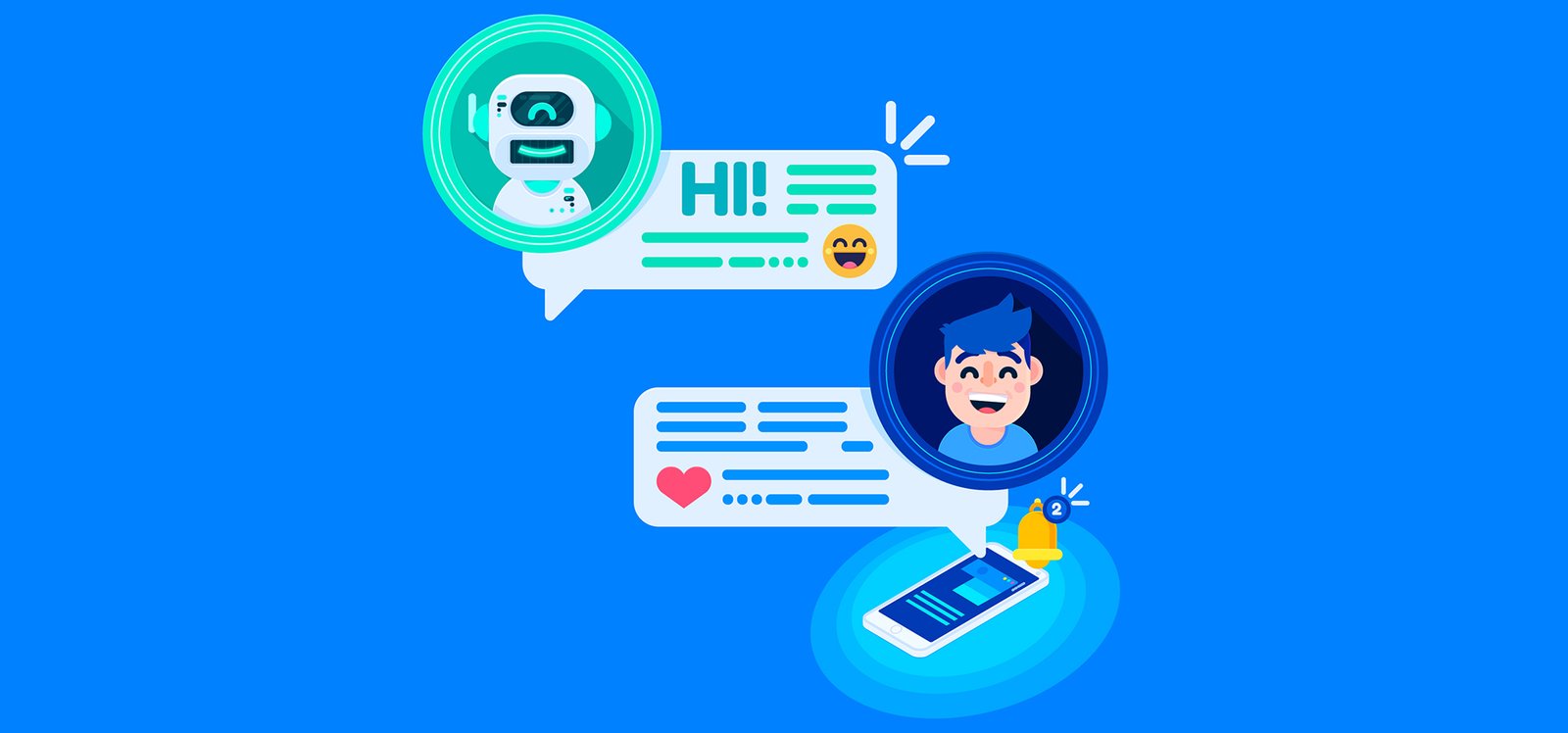AI chatbots have emerged as a major technological trend, transforming customer service by offering real-time, automated, 24/7 support. The chatbot market, valued at $2.6 billion in 2019, is projected to reach $9.4 billion by 2024, growing at an average annual rate of 29.7%.
Businesses across various sectors, including marketing, sales, human resources, and customer service, are increasingly leveraging AI-powered chatbots. Among these, customer service is expected to witness the fastest growth in chatbot adoption through 2026.
What are AI chatbots?
AI-powered chatbots are conversational tools that use artificial intelligence (AI) and natural language processing (NLP) to simulate interactions with users. They can communicate via messaging, text, or speech to answer common questions, offering benefits for both customers and organizations. Learn More AI Tools!
These bots analyze user inquiries to determine intent and provide the most relevant responses based on existing data. A major advantage of AI-driven chatbots is their ability to learn from interactions, enabling them to anticipate and address customer needs accurately without requiring human intervention.
Key Features of Modern Chatbots
- Natural Language Processing (NLP): NLP enables chatbots to comprehend and interpret human language, delivering more accurate and context-aware responses. By bridging the gap between robotic scripts and natural conversations, it creates a more intuitive and human-like interaction experience.
- Multilingual Support: For global businesses, chatbots with multilingual capabilities ensure effective communication with diverse audiences. This feature enhances accessibility and inclusivity, catering to customers in their preferred language.
- 24/7 Availability: Unlike human agents, chatbots operate around the clock without breaks. They provide continuous support, ensuring customers can access assistance anytime, day or night.
- Integration Across Multiple Channels: Modern chatbots seamlessly connect with various platforms, including websites, mobile apps, social media, and messaging apps like WhatsApp and Facebook Messenger. This omnichannel approach ensures a consistent and convenient customer experience across all touchpoints.
The benefits of AI chatbots in customer service
1. Instant User Need Resolution
According to Intercom’s trend survey, customer service teams utilizing chatbots are 60% more likely to resolve issues faster and 30% more likely to boost customer satisfaction compared to teams without chatbot support.
2. Lower Volume, Higher Service Quality
Automating repetitive tasks allows businesses to enhance operational efficiency. Customer service representatives can focus on complex issues that require human attention, ensuring a more personalized and higher-quality customer experience.
3. Cost Efficiency
AI-powered chatbots handle multiple customer queries simultaneously in real time, significantly boosting productivity. This enables businesses to serve more customers without increasing overhead costs, saving both time and money.
4. Seamless Routing to the Right Representative
When human assistance is necessary, AI chatbots gather relevant information and route customers to the most appropriate representative, leading to better engagement and satisfaction.
5. Enhanced Customer Insights
The data collected by AI chatbots provides businesses with valuable insights into customer sentiments and emerging trends, helping refine marketing and sales strategies for greater impact.
How Chatbots Enhance Customer Support Strategies
- Managing High Volumes of Queries: Manual support systems often falter during demand surges. Chatbots efficiently handle a high volume of requests while maintaining fast response times and consistent quality.
- Escalating Complex Issues to Human Agents: Chatbots manage routine inquiries seamlessly and escalate more complex issues to human agents when necessary. This ensures customers receive specialized assistance while allowing agents to focus on critical tasks.
- Providing Insights and Analytics: Chatbots gather valuable data on customer behavior, preferences, and challenges. Businesses can leverage these insights to improve their services and enhance overall customer satisfaction.
Real-World Applications of Chatbots in Customer Support
Chatbots have revolutionized customer support by providing efficient and seamless solutions across various industries. Their versatility makes them an essential tool for enhancing user experiences.
1. E-commerce
In online shopping, chatbots are indispensable for:
- Offering personalized product recommendations.
- Providing real-time order tracking.
- Resolving common issues like refunds or payment errors.
Brands like Amazon and Shopify use chatbots to boost customer satisfaction and drive sales with tailored shopping experiences.
2. Banking and Finance
Chatbots enhance customer interactions in the financial sector by:
- Allowing users to check account balances and process payments.
- Sending bill reminders and offering financial advice.
- Bank of America’s Erica is an example of a chatbot providing secure, accessible banking services.
3. Healthcare
In healthcare, chatbots streamline patient care by:
- Scheduling appointments.
- Answering symptom-related queries.
- Sending medication reminders.
- Apps like Babylon Health combine AI with chatbots to offer instant health advice.
4. Travel and Hospitality
Travel chatbots make trips smoother by:
- Assisting with itineraries and bookings.
- Handling flight delays and cancellations.
- Companies like Expedia use chatbots to manage customer queries, ensuring hassle-free travel experiences.
By integrating chatbots, industries deliver faster, more convenient, and personalized support to their customers.
The Future of Chatbots in Customer Support
The future of chatbots is auspicious as advancements in AI and machine learning continue to transform their capabilities.
- Conversational AI: Chatbots are evolving to understand context better and engage in more meaningful, human-like interactions, thanks to advancements in conversational AI.
- Voice-Enabled Chatbots: With the popularity of voice assistants like Alexa and Google Assistant, voice-enabled chatbots are becoming more common, offering intuitive and accessible customer interactions.
- Predictive Assistance: Future chatbots could proactively anticipate customer needs by analyzing past interactions, and providing solutions before problems arise. This level of personalization will redefine customer support standards.
- Integration with Emerging Technologies: Chatbots will integrate with innovations like augmented reality (AR) and blockchain to deliver enhanced services. For example, a chatbot could allow customers to visualize products in AR before making a purchase.










